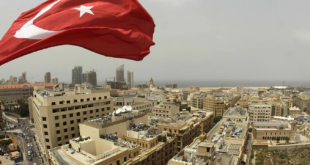Sunday night marked the final dramatic act in Poland’s presidential elections after months of campaigning in what had ultimately become a neck-and-neck race between the mayor of Warsaw, Rafal Trzaskowski, and the head of Poland’s Institute of National Remembrance, Karol Nawrocki.
Within minutes of the polls closing, the government-backed Trzaskowski claimed victory based on a projected 0.6-percentage-point lead in the first exit poll. Nawrocki, however, refused to concede and instead declared himself the yet-to-be-announced winner, promising his somewhat disoriented audience a belated late-night victory. To the shock of many, within two hours another exit poll flipped the cards and projected a narrow lead for Nawrocki, one that was later confirmed as the vote count proceeded.
By Monday morning, Nawrocki – whose nominally independent candidacy was backed by Jaroslaw Kaczynski’s Law and Justice (PiS) party, which has been in opposition since late 2023 – was officially declared president-elect in a serious blow to the government led by Kaczynski’s nemesis of the past two decades, Donald Tusk.
What explains such a turn of events barely a year-and-a-half after Tusk had managed to oust PiS from power following a record voter mobilisation? And what lies ahead now for Poland?
A liberal campaign that wasn’t
There were three major reasons why Rafal Trzaskowski’s campaign failed.
The first had less to do with the candidate or his campaign, rather more with the political camp he was associated with. Although it had long been expected that the government-backed candidate would face off against the PiS-backed candidate in a potential second round, the party blocs in the governing coalition separately put forward three candidates who did not refrain from attacking each other in the run-up to the first-round vote.
Not only did this imply mutual discord among the governing partners, but it highlighted the fact that the government didn’t have much to show for the promises it had made in 2023. While the official line had been that the government couldn’t pass any significant reform bills, let alone any that dealt with same-sex partnerships or abortion, because of a potential veto by the PiS-aligned incumbent president, Andrzej Duda, in reality the government parties had not been able to agree on many issues before even tabling bills.
As a result, according to regular voter surveys, the Tusk government had already lost significant support before the presidential campaign even officially started. So, any candidate who would run on the government-backed ticket would pay a price for the disappointment with the Tusk government.
Secondly, Trzaskowski, who was perceived to be a progressive liberal, was not only incapable of dissociating himself enough from Tusk, but effectively followed him by veering to the right on issues like immigration, Ukraine and the EU’s Green New Deal in a bid to appease conservative and potential far-right voters. This pandering to the far right backfired, as it normalised much of the far-right talking points and boosted support for the campaigns of far-right candidates like Konfederacja’s (Confederation) Slawomir Mentzen and Grzegorz Braun, a Konfederacja renegade.
Finally, apart from the misguided ‘turn to the Right’, Trzaskowski and his campaign made some spectacular mistakes – the presumptuous victory speech on Sunday was but the cherry on top of the cake in that regard. For most of the campaign, Trzaskowski had held a sizeable lead of more than 10 percentage points over the rest of the pack of candidates and he was the designated favourite to win the election. However, failing to put forward a clear policy program, often changing positions throughout the campaign and a bungled performance during the first candidate debates contributed to the erosion of his initial dominant lead.
By the time of the first-round vote on May 18, not only had Trzaskowski’s lead shrunk to within a statistical margin of error, but the combined PiS and far-right vote share showed real potential for a winning majority. In the run-up to the second-round vote, the momentum had passed to the initial underdog, Karol Nawrocki.
The unknown candidate
Nawrocki was not only initially an underdog, he was also virtually unknown beyond a broadly understood milieu of historians. His path to becoming the PiS-backed “civic candidate” started barely eight years ago when he was appointed as the new director of the WWII museum in Gdansk following its founding director’s ouster by the then PiS government. He was subsequently called upon by PiS to head the Institute of National Remembrance in 2021. It was in these administrative roles of executing PiS’s “politics of history” that he managed to catch the attention of PiS party leader Jaroslaw Kaczynski.
While rumours of Nawrocki’s political ambitions had been circulating for some time, it was only when Kaczynski decided to back him as a non-party presidential candidate in November 2024 that they became possible. Kaczynski’s decision to go with Nawrocki, a political novice, was likened to his unexpected choice for the relatively unknown Andrzej Duda back in 2015.
However, Duda was a seasoned PiS politician then sitting in the European Parliament; Kaczynski had three good reasons this time to choose an outsider like Nawrocki.
Firstly, as a non-party player, Nawrocki stood aloof from the factional struggles in PiS and would pose no threat to Kaczynski’s position as leader. Secondly, since he was not associated with PiS as a politician, so he was rather untarnished by the years of PiS’s ‘illiberal’ rule between 2015 and 2023.
Finally, as a so-called “civic candidate”, the nationalist Nawrocki with his tough-guy image as a boxer held the potential to appeal beyond the loyal PiS electorate. This was especially valuable in a potential second-round run-off in order to court the voters of the far-right Konfederacja.
Why Nawrocki won
A top-two finish and a ticket in the second-round run-off was practically guaranteed due to the two-decade-old logic of the duopoly in Polish politics, i.e. the perennial rivalry between Tusk and Kaczynski and their respective parties and coalitions. Between them, they usually mustered around 70 per cent of the vote share, effectively squeezing out any other political options. Since its founding, PiS had only once lost a presidential election.
Over the years, Polish society has become ever more polarised along the lines of the political duopoly with the middle ground become ever narrower. This resulted in an ever-growing divide, one that also included the mediascape. Today, people follow the news and get their information from within their own distinct media bubbles while perceiving others as hostile. For this reason, various disreputable aspects of Nawrocki’s murky past that surfaced during the campaign did not seem to dent his support, as they were dismissed as disinformation or smears by the ‘other side’. In fact, in the eyes of his supporters, it only served to bolster Nawrocki’s image as a victimised underdog fighting the establishment.
Nawrocki also benefitted from the overall normalisation of far-right talking points and policies in the political realm. Since he espoused similar views on topics related to the EU, immigration, climate change and Ukraine as those propagated by Konfederacja, he openly endorsed the far right’s program in the run-up to the second round. He also became the beneficiary of a ‘rebellious youth’ vote, which coincidentally was concentrated the highest among far-right voters.
Finally, Poland’s political divisions have been most often expressed not through social-economic cleavages, but along cultural and religious lines. Culturally, this cleavage is frequently referred to as the urban-rural divide, between the liberal and progressive dwellers of the country’s largest cities who supported Trzaskowski and the conservative population of the small towns and the provinces that voted overwhelmingly for Nawrocki. Post-election data also shows that there was a strong correlation between practicing Catholics and supporters of Nawrocki, a majority of whom reside in the countryside. All the above factors combined to give Nawrocki the narrow but decisive win in the election.
Quo Vadis?
With Trzaskowski’s defeat, the path to undoing much of PiS’s illiberal reforms has effectively become blocked for the government. Neither is there be any prospect of legalising same-sex partnerships or pushing through any liberalisation of the abortion law with Nawrocki as president.
At best, the current government will have to seek workarounds to realise some of the promises it made back in 2023 and muddle along until the parliamentary elections in 2027. At worst, the country will see an escalating conflict in a difficult cohabitation between the government and a president Nawrocki, which could lead to early elections with the far right as kingmakers in a new government formation.
The office of president in Poland is admittedly largely ceremonial, though it enjoys the power of veto – to be overturned, a qualified majority is required, which the current governing coalition does not have – and some influence over foreign and defence policy. Though during the campaign Nawrocki was not well-versed on policy issues, he did emphasise an interest in the armed forces. As commander-in-chief, he could potentially try to exert influence among the military’s top brass and try to strong-arm the Defence Ministry on policy.
Nawrocki, who is seen as more antagonistic than the relatively pragmatic Duda, is also expected to wield his veto powers more often than the latter to block the government’s work as much as possible. One possible scenario floated this week is that Nawrocki could obstruct the adoption of the next budget by refusing to sign off on it in order to trigger early elections.
Internationally, Poland’s relations with the EU will become more complicated again, with the government unable to effectively address the rule-of-law concerns. The pro-Trump and anti-EU Nawrocki would throw a spanner in the works at every possible turn. Due to his lack of political experience, Nawrocki will likely provoke a loss of prestige for Poland, pushing the country back to the sidelines of the European periphery with the image of an unreliable partner in Europe.
Following Nawrocki’s victory, Tusk called for a vote of confidence in his government, set to be held on June 11, to shore up his governing coalition. Though he is expected to have sufficient votes, he might effectively be gambling to strengthen his own hand in early elections if the vote doesn’t go the government’s way. Either way, if the governing coalition doesn’t set to work to realise some of its promises to win back voter support, its prospects in an early election would likely be dire. The spectre of PiS’s return to power in coalition with the far-right Konfederacja has become a real possibility.
Yet Nawrocki’s win might turn out to be a Pyrrhic victory for PiS itself. Though there is still much that the public does not know about him, he is a very different beast to Duda, a law professor from an intelligentsia background. Nawrocki comes from a working-class milieu, has allegedly had dealings with the criminal underworld, and has proven himself to be a brutal boss in the WWII museum and the Institute of National Remembrance. Above all, he seems aggressively ambitious.
If Nawrocki is successful in bringing down the Tusk government, he might set his sights next on PiS and Kaczynski by allying with the far right.
 Eurasia Press & News
Eurasia Press & News




